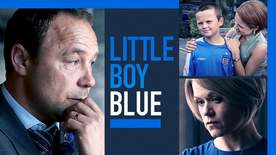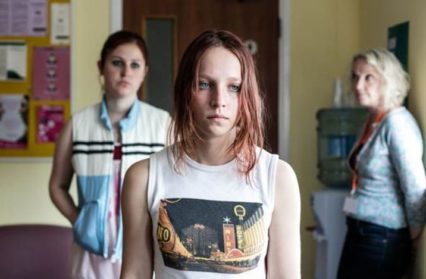Gary Raymond shares his opinion on ITV’s Little Boy Blue and BBC’s Three Girls and draws comparisons between the two productions.
It’s about time we stopped using the term ‘failure’ when referring to the abuse of vulnerable people in this country by systems that have been put in place to protect them. It is time to stop tutting and bemoaning how children, the elderly, the sick, the needy are ‘let down’. These are passive terms, and make us all feel that little bit better about the insurmountable nature of some tragedies. We tried, but we failed. How very British.
The fact is, the national dialogue is more aggressive toward Bank Holiday weather than it is about the prejudices and cruelty that is delivered upon the most vulnerable in our society.
Over the last few weeks, BBC and ITV have been seen to try and force this point home, with a rather noble ratings war (a rare thing nowadays), by airing over the same season dramatisations of two recent crimes and their subsequent fallouts that occurred in the north of England. Little Boy Blue told the story of the murder of Rhys Jones, the eleven-year-old who was shot to death in a pub car park in 2007. His killers were convicted in 2008. The drama is a worthy tribute to both the grief of those affected and to the dedication of the officers who worked to secure a conviction, and as a whole it is one of those shows that Britain has done peerlessly since Jimmy McGovern left Brookside in the early nineties.
Stephen Graham is the emotional heart of the film, dependable as always as the stocky lightening rod, pushing toward true justice when everyone else in a suit seems to be playing a numbers game. In the third episode of the four, it seems that all that comes between the killers and a slap on the wrist is Graham’s DS Dave Kelly and his office baseball bat. For his hard work, for his righteousness, and for his refusal to buckle under pressure from his superiors, Kelly is verbally thanked in a private meeting and then passed over for promotion. He takes early retirement before the denouement of six months later. Kelly’s fight, however, is not simply for justice, but it is a fight to try and realign some moral sense in those hard-bitten council estates in Liverpool (the likes of which, incidentally, in Kirkby and Tower Hill, my family comes from, and many of them still live).
It is these places, and countless others around the country, that have not been ‘let down’ by authorities, but have been systematically economically oppressed by consecutive governments, that have been educated in hopelessness by conservative agendas, and ultimately, just as Thatcher intended, been recruited into the sub-classes the British right have simultaneously courted, vilified and farmed. In Little Boy Blue there are, of course, heroes and villains, but victims are everywhere.
The case in point is even more stark in the harrowing BBC verbatim drama, Three Girls, aired over consecutive nights last week, telling the story of the grooming and abuse of young girls in Rochdale. The drama could have gone in any number of directions, focussed on any number of extremely troubling facets of this infamous case, but director Philippa Lowthorpe and writer Nicola Taylor rightly perceived that the real story here went beyond the repugnant actions of the men involved. Lowthorpe and Taylor seem to be under no illusion that the language of the media and the organisational PR companies is woefully inaccurate when describing how the girls and their families were ‘failed’ and ‘let down’. The attitude of the authorities in Rochdale – and many many other authorities across England as has been subsequently found out – amounts to nothing less, as one character intimates at one point, than another round of abuse perpetrated upon the victims.

In the times since the unravelling of the Rochdale case, mea culpa has been the order of the day up there, but again this smacks of PR strategy. Sara Rowbotham, the ‘whistleblower’, played with expected gravitas and empathy by Maxine Peak, was sidelined and then made redundant as thanks for her tireless work on behalf of the victims. In a recent article for The Guardian, Rowbotham called on programmes like Three Girls to be the starting pistol for a new age of ‘resilient, confident communities’. But when people like Rowbotham and DS Dave Kelly are cast out for their work rather than recruited to head task forces to this effect, the only conclusion that can be drawn is that the only thing that has changed is the language used by the PR companies hired by these public service organisations. No longer is there ‘nothing to see here’, but there is, they now admit, ‘failures’. No.
The actions of the authorities in these cases and countless like them are not failures, they are abuses, and as long as the dehumanising of the working classes serves the political agenda of the British right wing, these abuses will continue without shame. Perhaps dramas such as Little Boy Blue and Three Girls will have a part to play in change, in the same way McGovern’s Hillsborough played its part in another chapter of this sorry tapestry. But for now perhaps such movements and campaigns could start with a slogan. How about: Fuck Passive Language.
Gary Raymond is an editor and regular contributor to Wales Arts Review.



 Enjoyed this article? Support our writers directly by buying them a coffee and clicking this link.
Enjoyed this article? Support our writers directly by buying them a coffee and clicking this link.







